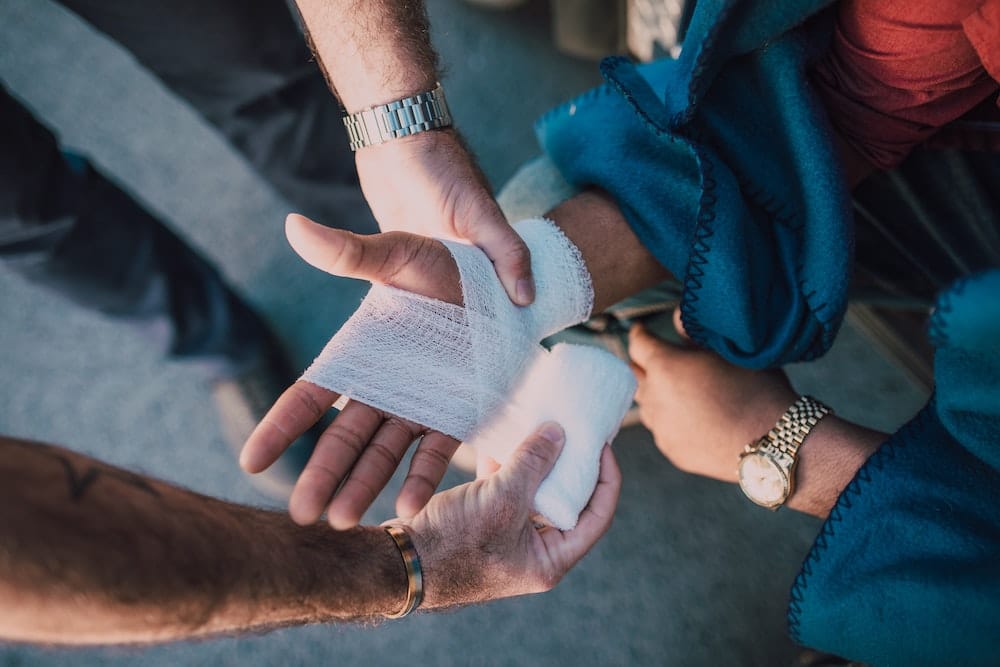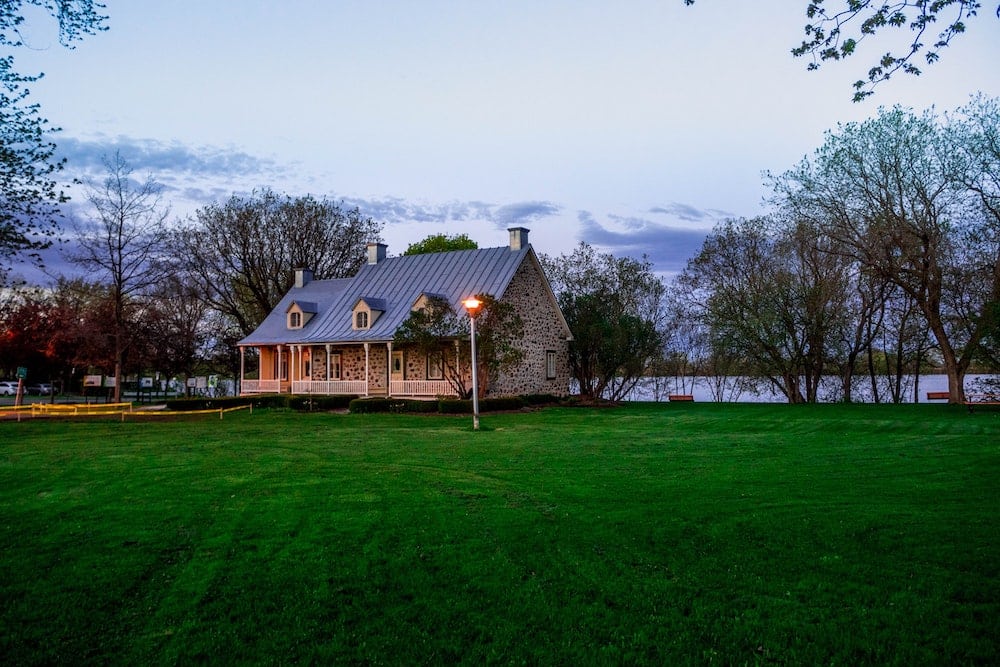One of the biggest concerns for homeowners when entering the vacation rental business is whether they will ever have any problem guests. Unforeseen events, such as property damage or injury, can arise from many different situations – and could cost a fortune!
However, in legal terms, if your short-term rental business isn’t well protected, little can be done to resolve these problems once they’ve occurred. So how can you avoid this? Protect yourself beforehand – in other words, choose the best vacation rental insurance.
Do you need vacation rental insurance as a host?
The most common types of home insurance are designed for owner-occupied and tenant-occupied properties, and these will rarely cover vacation rentals. Although your home insurance can have multiple policies or liability insurance, it’s highly likely it doesn’t cover renting out to guests as a business.

There are several explanations for this. Firstly, there is an increased risk of property damage when having such a high turnover of guests. Moreover, there’s more chance of injury as a result of on-site amenities and facilities that may be unfamiliar to guests as well as the likelihood of large parties. If the short-term rental is unoccupied for extended periods, it may be more susceptible to flooding or theft.
Therefore, in order to protect your property, your guests, and your vacation rental business, it’s vital that you’re covered for all possible outcomes.
What does vacation rental insurance cover?
Each short-term rental insurance package differs depending on the property type, location, and business needs. Every owner must analyze what they want to protect and which vacation rental insurance best suits them. Due to the increase in short-term rental properties, more and more insurance companies are now providing coverage for hosts.
Let’s look at what vacation rental insurance covers and explore the additional tools on offer to protect your business.
1. Liability insurance
Liability insurance covers accidents that occur while guests are staying on your property. However, it doesn’t cover damage to the property. Accidents are unlikely, but you should be prepared for a worst-case scenario.
If you want you and your business to be protected, taking out liability insurance is a good idea. In the event that a guest has an accident or is injured on your property and decides to sue, all the legal costs and proceedings will be covered.

2. Property and contents coverage
It’s always better to prevent something from happening than to fix or replace it when the damage has been done. That’s why homeowners prefer to have insurance that covers all situations in which they could lose money.
Experts recommend taking out multi-risk insurance to cover fire, flood, hurricanes, and third-party claims, as well as for guest theft, electrical damage, or any other weather-related situation. Employee liability insurance is also recommended for gardeners, cleaners, or maintenance personnel. And, of course, you should insure your house when it’s empty as it will be extra vulnerable, including when undergoing any renovation work on your property.
Equally, many short-term rental owners like to express themselves by having their own personal valuables within the property, for example, pieces of art, furniture, or musical instruments. It’s crucial, therefore, to find vacation rental insurance that will also protect the property and its contents from damage and theft.
3. Guest screening
Although guest screening isn’t insurance per se, it’s a common and popular method for further protecting your home. This process involves verifying the guest who booked your accommodation by completing various checks to ensure that the guest is who they say they are.
Safely, a U.S.-based provider of short-term rental insurance, provides a comprehensive guest screening system that identifies problem guests. Performing background checks and scanning various databases, such as criminal records and credit history, hosts are able to reject any bookings made by guests that are flagged by Safely.
Know Your Guest by SUPERHOG specialize in reducing the risks associated with short-term rental bookings, providing innovative biometric technology for guest screening, comprehensive database checks, and facilitating damage waivers and damage deposits for property managers and hosts.
For more information, check out our comparison of the best short-term rental insurance companies for 2023.

4. Damage waivers and security deposits
Hosts probably accept that, at some point, they will experience some form of property or contents damage, be it a broken chair or a simple wine stain. However, they want to avoid having to pay for this damage out of their own pocket, affecting their business and, in turn, the customer experience. Vacation rental owners can consider collecting a non-refundable damage waiver whereby the customer pays a modest fee that would go towards covering any potential damage. This option is often more appealing to the guest as it’s less of a financial strain than placing a large deposit.
On the flip side, guests are much more careful around your property and your valuables if they have had to put down a security deposit. This can be anywhere from $50 to $1,000, depending on the size of the guest group and the rental itself. Adding a mandatory security deposit to your listings adds an extra layer of protection to your home and valuables.
How to find the best short-term rental insurance?
The process of searching for vacation rental insurance has certainly got easier over the last few years due to the increase in coverage offered; however, it’s still tricky to find the right one if you don’t know what you need.
Many hosts join online communities and forums related to vacation rentals where you can ask fellow hosts questions about the industry, including insurance. Airbnb’s Community Center and subreddit are good places to start, as is VRMB. Being able to have your questions answered by experienced hosts is bound to reassure and guide you when selecting your insurance provider.
Additionally, you can check out Lodgify’s integration partners, some of which offer some form of vacation rental insurance, to see if you’d benefit from the services on offer. Alternatively, you can check out the list below, where we look at companies whose expertise is short-term rental insurance for owners.

Insurance companies that specialize in short-term rentals
So, how can you find insurance that’s right for you? Insurance differentiates from state to state, the type, the number of properties, and what you want to be covered for. It’s essential to do all the research on what you and your business need. Remember that insurance also differs in every country.
Specific vacation rental insurance does exist and is neither home insurance nor insurance for a standard business. They offer insurance purely to protect your vacation rental. They also include some services, such as guest screening or payment protection. They may be able to provide you with some specific policies depending on your budget.
- InsuraGuest provides you and your guests with protection against guest injuries, property damage, and theft. Moreover, hosts have the option of adding part of the subscription fee to their listing, so guests share the cost of the coverage provided by InsuraGuest. (U.S. only)
- Know Your Guest by SUPERHOG offers up to $5 million of damage protection for all verified bookings across an array of platforms. (Available everywhere with some restrictions)
- Safely’s comprehensive guest screening technology combined with up to $1,000,000 in coverage for your vacation rental, its contents, and bodily injury makes it a robust choice for an insurance provider. (U.S. only)
- Proper Insurance offers a customized package based on your business and has been designed especially for hosts on Airbnb and Vrbo. They claim their coverage replaces traditional homeowner and landlord policies, and combines it with the benefits of vacation rental insurance. (U.S. only)
Protection from OTAs
Booking platforms such as Airbnb and Vrbo offer their version of free vacation rental insurance for owners. For starters, these listing sites provide an option where you can get a deposit from the guests, acting as a guarantee in case they damage your property. You can choose the amount you would like for the deposit in advance, making guests more careful with your property for fear of losing this amount.

In addition to allocating a security deposit, Airbnb provides its hosts with AirCover, which comes with a coverage value of up to $1,000,000 for third-party claims of personal injury and up to $3,000,000 in damage protection.
Vrbo provides $1,000,000 liability insurance for homeowners and property managers listing through their site. Even if you already have your own liability insurance, if someone makes a claim against you, Vrbo provides additional coverage.
Although these policies have pros, they do have some drawbacks. For example, the host protection insurance provided by Airbnb only covers damage caused by travelers, but it won’t insure you in the event of a claim, whoever is at fault. It will also not cover damage not caused by guests, for example, if there is a flood in your house (which is nobody’s fault) and it leaks to your downstairs neighbor. In that case, you’ll have to pay whatever it takes out of your pocket.
Big insurance companies with policies for short-term rentals
Some traditional, larger insurance companies now offer policies for short-term rentals, which could be considered more than adequate depending on your needs.
- Protecting against theft and damage, Allstate has created its HostAdvantage Home-Sharing Insurance policy, which covers up to $10,000 in contents damage per rental period.
- CBIZ says it’s the largest insurer of short-term vacation rental properties in the United States. Its specialized policies offer replacement cost coverage for property structure and its contents as well as damage caused by guests.
- Nationwide also offers personalized plans that cover vacation rentals and second homes. Its insurance agents will evaluate your property and business before customizing a package that works for you.
Common mistakes when getting vacation rental insurance
Unfortunately, some hosts have learned the hard way when it comes to vacation rental insurance. There have been several cases of hosts having to pay for the damage they thought they were protected from with their homeowners’ policy. To steer you away from doing the same, we discuss the most common mistakes to avoid when buying short-term rental insurance.

1. Assuming your existing home insurance policy will cover you
Many vacation rental owners make the mistake of thinking their main home insurance policies cover their rental property. However, as insurers consider making money from your home a commercial activity, they are likely to compromise or completely invalidate the existing policy.
For those few insurers who say they cover home-sharing, confirm they provide the cover you need. There is a difference between your insurer allowing you to rent out your property and having the proper coverage when you welcome paying guests.
2. Assuming you need a landlord policy for home-sharing
Landlord policies don’t work for vacation rentals because they are traditionally used for tenanted properties – and require extensive checks on tenants. While you may screen guests, in general, you will not carry out complete checks as travelers only stay a few nights each.
3. Assuming Airbnb’s AirCover provides the cover you need
Listing platforms such as Airbnb have done a great job providing some coverage through their guarantee, but they make it clear that this is not a substitute for insurance. Airbnb encourages all hosts to have the right insurance, so follow their advice.
4. Not speaking to your insurer
We know that no one wakes up in the morning looking forward to talking to their insurer, but it’s crucial to have everything clear. The worst thing they will say is that they won’t cover you. It’s always better to know sooner rather than later, so you can organize the cover you need before something goes wrong.
5. Not documenting insurance and incidents
If you are a property manager working with many hosts, make sure they give you a written confirmation that says they have the right vacation rental insurance. It only takes a sentence, but having it can save you considerable hassle in the long run. It’ll also mean you’ve taken all reasonable steps to ensure your hosts are adequately informed.
Moreover, any damage, theft, or injury incidents should be noted and recorded for future reference. Having all the necessary evidence will strengthen your case for a claim if you need to make one.
How much does vacation rental insurance cost?
Like most insurance companies, those that offer vacation rental insurance will want to gather all the details regarding your property, rental period, and business activity before providing you with a quote. The average cost for short-term rental insurance is around $1,500 to $2,500 a year. Depending on your property’s location, you could be paying up to $9,000 a year if your rental is based in top tourist destinations like Florida and California.
Some companies, such as InsuraGuest, allow you to pause your insurance policy when your home is unoccupied, ensuring you only pay when you have paying guests staying.

FAQs about short-term rental insurance
1. Do I need vacation rental insurance if I already have home insurance?
The short answer is “yes”. Although home insurance protects against damage and theft to your home, it assumes that the home is owner-occupied. As vacation rentals are considered a higher risk due to the number of guests and the likelihood of unauthorized gatherings, you will need an additional policy to cover you.
2. Does my vacation rental insurance replace my homeowners’ insurance?
In most cases, no. Vacation rental insurance is, more often than not, an additional policy that covers you when renting your property as a business. There are some examples of vacation rental insurance that have been designed to substitute homeowners and landlord insurance, such as Vrbo partner, Proper Insurance.
Takeaways
It’s always better to be covered by vacation rental insurance, even if you think something is unlikely to happen. By protecting yourself, your home, and your guests ahead of time, your business will run much more smoothly—and your future self with thank you. Although we don’t like to think so, things can always go wrong in life, and it’s better to be overprepared in those situations.
Although it may seem like a significant dent in your budget, it’s almost always worth it to be covered for all eventualities. As the short-term rental industry grows, we’ll likely see more specialized options for hosts.


